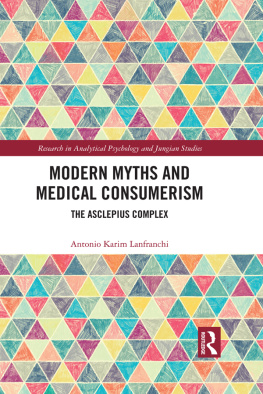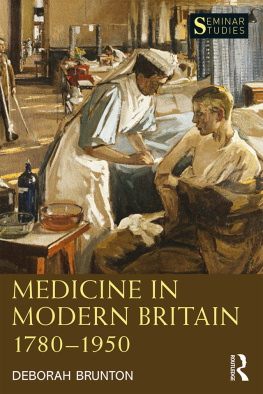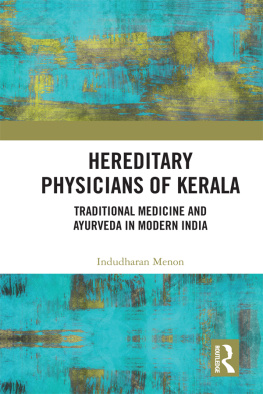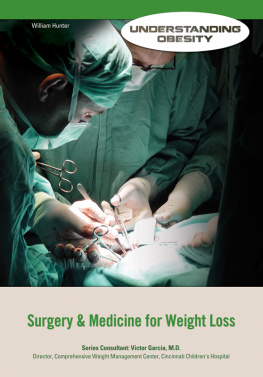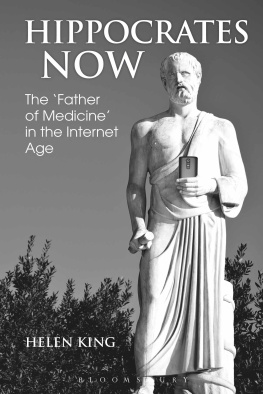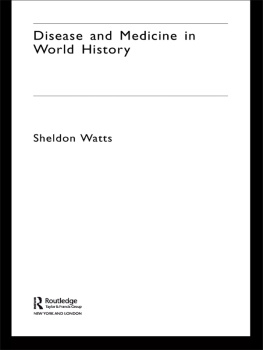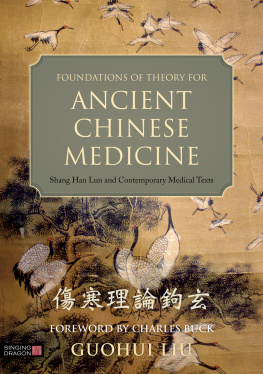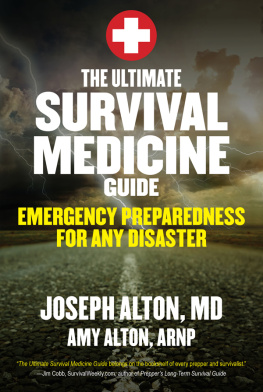First published in English 2018
by Routledge
2 Park Square, Milton Park, Abingdon, Oxon OX14 4RN
and by Routledge
711 Third Avenue, New York, NY 10017
Routledge is an imprint of the Taylor & Francis Group, an informa business
2018 Antonio Karim Lanfranchi
The right of Antonio Karim Lanfranchi to be identified as author of this work has been asserted by him in accordance with sections 77 and 78 of the Copyright, Designs and Patents Act 1988.
All rights reserved. No part of this book may be reprinted or reproduced or utilised in any form or by any electronic, mechanical, or other means, now known or hereafter invented, including photocopying and recording, or in any information storage or retrieval system, without permission in writing from the publishers.
Published in Italian by Moretti & Vitali in 2010 as La vita appesa a un filo. Miti doggi e consumismo sanitario.
Translated by Jonathan Hunt
Trademark notice: Product or corporate names may be trademarks or registered trademarks, and are used only for identification and explanation without intent to infringe.
British Library Cataloguing-in-Publication Data
A catalogue record for this book is available from the British Library
Library of Congress Cataloging-in-Publication Data
Names: Lanfranchi, Antonio, author.
Title: Modern myths and medical consumerism : the Asclepius
complex / Antonio Lanfranchi.
Description: Milton Park, Abingdon, Oxon ; New York, NY :
Routledge, 2018. | Includes bibliographical references.
Identifiers: LCCN 2017056721 (print) | LCCN 2017059060
(ebook) | ISBN 9781351167642 (E-book) | ISBN
9780815348221 (hbk) | ISBN 9781351167642 (ebk)
Subjects: LCSH: MedicinePhilosophy. | Physician and patient.
Classification: LCC R723 (ebook) | LCC R723 .L348 2018 (print) |
DDC 610.1dc23
LC record available at https://lccn.loc.gov/2017056721
ISBN: 978-0-8153-4822-1 (hbk)
ISBN: 978-1-351-16764-2 (ebk)
Typeset in Sabon
by Apex CoVantage, LLC

Research in Analytical Psychology and Jungian Studies Series
Series Advisor: Andrew Samuels
Professor of Analytical Psychology, Essex University, UK
The Research in Analytical Psychology and Jungian Studies series features research-focused volumes involving qualitative and quantitative research, historical/archival research, theoretical developments, heuristic research, grounded theory, narrative approaches, collaborative research, practitioner-led research, and self-study. The series also includes focused works by clinical practitioners, and provides new research informed explorations of the work of C. G. Jung that will appeal to researchers, academics, and scholars alike.
Books in this series:
Jung and Kierkegaard
Researching a Kindred Spirit in the Shadows
Amy Cook
Consciousness in Jung and Patajali
Leanne Whitney
Shame and the Making of Art
A Depth Psychological Perspective
Deborah E. Cluff
Modern Myths and Medical Consumerism
The Asclepius Complex
Antonio Karim Lanfranchi
For more information about this series please visit: www.routledge.com/Research-in-Analytical-Psychology-and-Jungian-Studies/book-series/JUNGIANSTUDIES.
Contents
PART I
A metapsychology of the doctors consciousness
PART II
Medicine and society in our time
PART III
Life hanging by a thread
Guide
I wish to thank Luigi Zoja, whose constant intellectual stimulation was essential for the realization of this project. Thanks also for the support of Eva Pattis, Enrico Moretti and Carla Stroppa. Feelings of gratitude go to friends and colleagues, Paolo Bergmann, Philip Bechtel, Massimo Lemma, Evangelos Tsempelis, Alessandra Di Montezemolo, Giovanni Sorge, Donatella Buonassisi and Roberto Grande, who were helpful in different ways during the writing process. A special acknowledgment to my mother, Sania Sharawi Lanfranchi, and to my sister, Mariangela Soraya Lanfranchi, for their continuous intellectual and material assistance. My gratitude also goes to the Teachers and Colleagues of the C. G. Jung Institute, Ksnacht, Zrich. Finally my most heartfelt gratitude goes to my wife, Cristina, for her joyful presence and unending conversation, and to my sons, Edoardo and Guglielmo, to whom this book is dedicated.
Part I
A metapsychology of the doctors consciousness
Part III
Life hanging by a thread
Chapter 7
Illness as an experience of the soul
Once the acute phase of a serious illness has passed, the violent reactions of the psyche to the narrow escape from death generates intense conditionings and constellates often unconscious meanings, in the form of images or fantasies, which are channelled by the collective consciousness, so that this becomes an effective container for them. During this phase, rationalization is a fairly common defence mechanism; sometimes denial or splitting occurs. In this process the doctor may make a prudent contribution, sensitive to the processing of defensive reactions by the patient. It is more common for the doctor to choose a neutral position, fomenting the technological automatism of treatment, by encouraging patients to use their own faculties of processing with little or no help, and strengthening their defences, when these facilitate the execution of the treatment programme. The over-medicalization of society is in my opinion increased by the prevalence of this approach. A concretistic obsession with pills, or sometimes a one-sided rejection of them, an insistence on continuing treatment or rejecting it passively, added to the oppressive sense of the burden one is laying on society, are all driven by a failure to process the experience of illness and the treatment that is applied.
It is not surprising, however, that the considerable improvement in health and quality of life provided by technological medical progress is not perceived as such by many patients. Although modern medicine is incomparably more effective than in any other period, the doctor is not accorded the same unconditional trust that used to be placed in the family doctor. My profession, as a hospital cardiologist in one of the public hospitals of Milan, gives me daily experience of the remarkable effectiveness of technological medical operations for the survival of heart attack patients. Rapid recovery tends to lead to denial or repression of the experience of illness. Therapeutic success in acute cases has also caused a gradual increase in the evolution towards chronic illness, owing to the fact that an increasing number of patients survives until the advanced stages of heart disease. These patients suffering from chronic heart failure are faced with frequent hospitalizations and limitations on their bodily functions (and quality of life), the growing socio-economic cost of which places an increasing burden on the health service, and leads to greater social exclusion, as well as loneliness, anxiety and depression (at least a fifth of heart patients are affected by a major anxious or depressive disorder). In such patients, who are more in contact with their own vulnerability and dependence, I often sense a deeper, sometimes unex-pressed thirst, which expresses itself, despite all their attempts to deny it, in a gentle humour, free from absolute expectations. It is an approach which perhaps once found an echo and sublimation in the great container of tradition, through religion, myths and folk tales.

